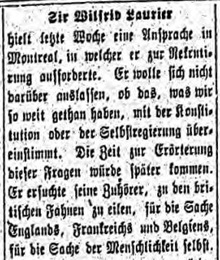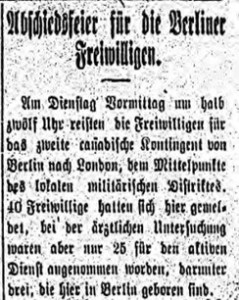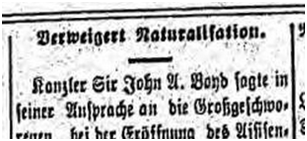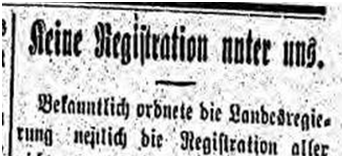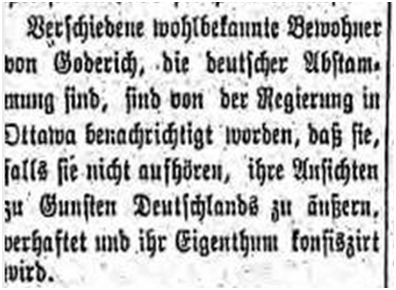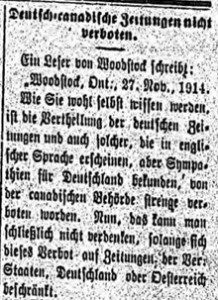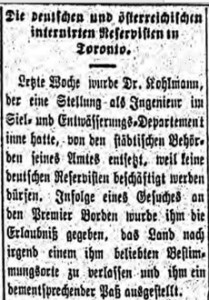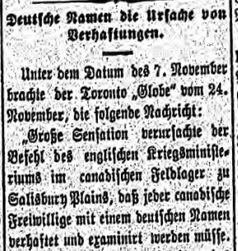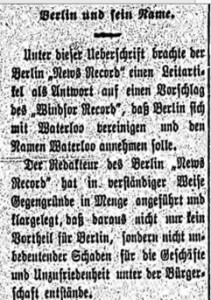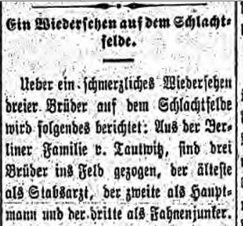In late October, the Journal reported on a speech given by Sir Wilfrid Laurier in Montreal, where he encouraged Canadian men to enlist. He begged his audience to help Britain, France and Belgium immediately for the cause of humanity. Knowing that he was asking young men for a great sacrifice, he also said that he envied them their youth which allowed them to make such sacrifices. Laurier felt it important that Canada should create a volunteer army into which every member would make an individual choice to enlist.
(„Sir Wilfrid Laurier…“, Berliner Journal, 28 October 1914)
